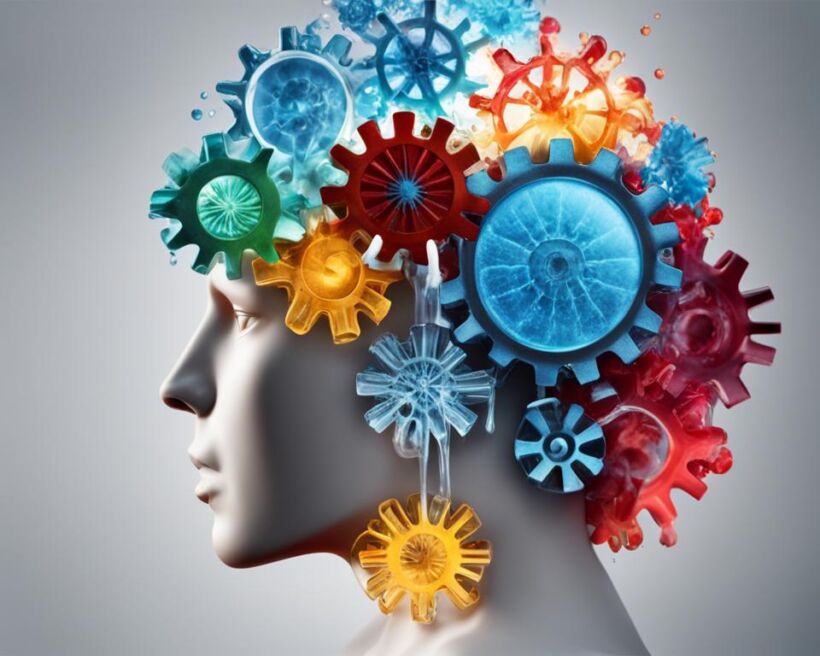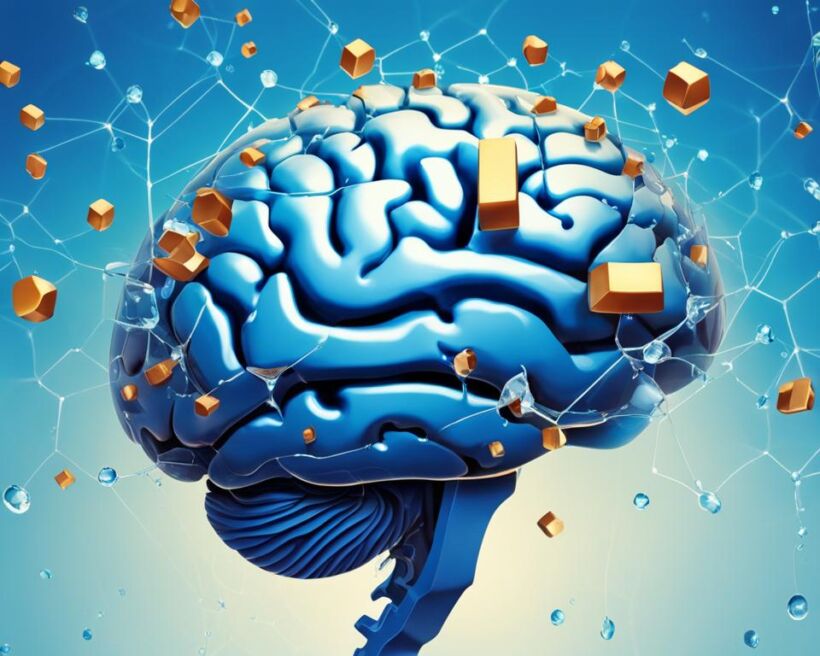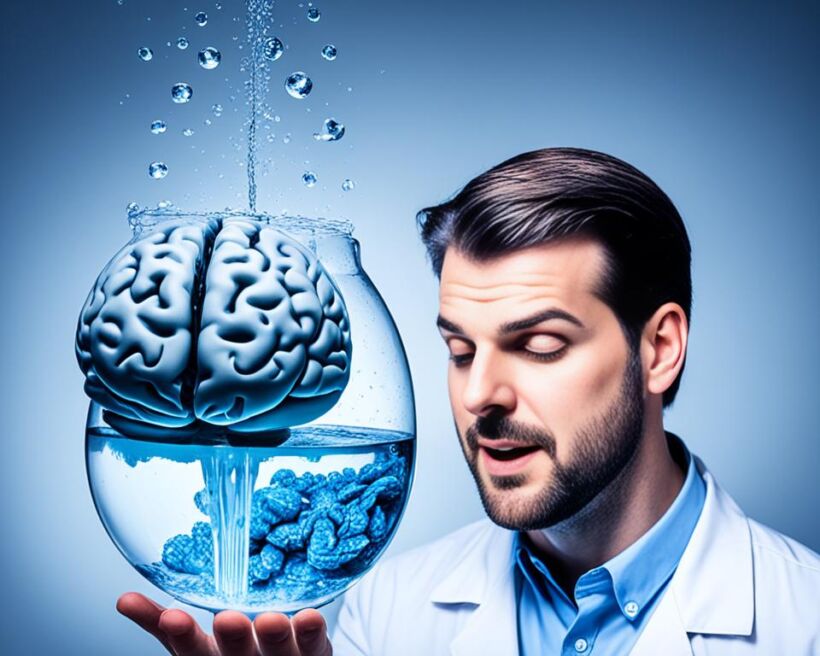Have you ever wondered if staying properly hydrated could enhance your cognitive abilities? Could the key to unlocking your brain’s full potential lie in something as simple as drinking enough water? As it turns out, the impact of proper hydration on cognitive function is far more significant than you might think. The importance of hydration on cognitive health cannot be overstated.
Understanding Cognitive Function
Before delving into the impact of hydration, it is essential to understand what cognitive function entails. Cognitive function refers to the mental processes and abilities that allow us to perceive, process, store, and retrieve information. It encompasses a wide range of cognitive processes, including:
- Attention: The ability to focus on specific stimuli while ignoring distractions.
- Memory: The processes involved in storing and retrieving information.
- Language: The ability to understand and produce spoken and written words.
- Problem-solving: The cognitive skills required to analyze and solve complex problems.
- Decision-making: The cognitive processes involved in making choices and evaluating alternatives.
- Perception: The interpretation of sensory information from the environment.
These cognitive processes work together to shape our perception, understanding, and interaction with the world around us. Cognitive function plays a crucial role in various aspects of our lives, including learning, work performance, and daily activities.
The Role of Water in Cognitive Function
Water plays a crucial role in supporting optimal cognitive function. Hydration is essential for maintaining brain health and ensuring the smooth functioning of cognitive processes. Let’s explore how water influences brain function and the specific mechanisms through which hydration impacts cognitive abilities.

Firstly, water is a fundamental component of brain tissue, accounting for approximately 73% of its total weight. Proper hydration ensures the delivery of oxygen and essential nutrients to the brain, promoting optimal functioning.
Additionally, water plays a vital role in maintaining the balance of electrolytes in the brain, such as sodium and potassium. These electrolytes are critical for transmitting electrical signals between brain cells, enabling cognitive processes like learning, memory, and decision-making.
Furthermore, hydration supports the removal of metabolic waste products from the brain, including toxins and harmful byproducts. This cleansing process helps to maintain a healthy and efficient cognitive system, enhancing cognitive performance.
Research has indicated that even mild dehydration can have detrimental effects on cognitive function. A study published in the Journal of Nutrition found that mild dehydration, as low as 1-2% loss in body weight due to insufficient water intake, was associated with impairments in memory, attention, and mood.
The table below summarizes the key roles of water in cognitive function:
| Roles of Water in Cognitive Function |
|---|
| Provides hydration to brain tissue |
| Maintains electrolyte balance for efficient brain cell communication |
| Supports removal of metabolic waste products |
| Essential for optimal cognitive performance |
Ensuring adequate hydration throughout the day is crucial for optimal cognitive function. It is recommended to drink water regularly, even before feeling thirsty, as thirst is an early indicator of dehydration. Hydrating strategies such as keeping a water bottle handy, setting hydration reminders, and choosing water-rich foods can all contribute to improved cognitive abilities.
Remember, staying properly hydrated is not only important for physical health but also for maintaining your cognitive edge.
Hydration and Mental Performance
Proper hydration isn’t just vital for physical health, but it also plays a significant role in enhancing mental performance. Staying hydrated has numerous benefits for cognitive abilities, including improved memory, attention, and overall mental sharpness.
Research has shown that dehydration can impair cognitive function, leading to difficulties in concentration, memory recall, and attention span. On the other hand, maintaining optimal hydration levels can have a positive impact on various cognitive tasks, allowing you to perform at your best.
Adequate hydration supports brain health by ensuring the delivery of oxygen and essential nutrients to the brain cells. This, in turn, helps to optimize neural function and enhance cognitive processes such as learning, problem-solving, and decision-making.
When you stay hydrated, your brain is better equipped to maintain focus and sustain mental energy throughout the day. Hydration helps to prevent cognitive fatigue and promotes mental clarity, enabling you to think more clearly, make better decisions, and perform tasks efficiently.
The Benefits of Staying Hydrated for Cognitive Abilities:
- Improved memory retention and recall
- Enhanced attention and concentration
- Boosted mental agility and processing speed
- Increased creativity and problem-solving abilities
- Heightened alertness and mental alertness
By ensuring you stay hydrated, you can unlock the full potential of your cognitive abilities and optimize your mental performance. Make hydration a priority and experience the benefits of improved memory, sharper focus, and enhanced cognitive function.
| Benefits of Staying Hydrated for Cognitive Abilities: |
|---|
| Improved memory retention and recall |
| Enhanced attention and concentration |
| Boosted mental agility and processing speed |
| Increased creativity and problem-solving abilities |
| Heightened alertness and mental alertness |
Dehydration and Cognitive Impairment
While the importance of hydration for cognitive function has been established, it’s equally crucial to understand the negative effects of dehydration on cognitive abilities. Dehydration occurs when the body loses more fluids than it takes in, leading to an imbalance that can significantly impact brain function.
Research has shown that even mild dehydration can impair cognitive performance, affecting memory, attention, and overall mental acuity. Cognitive tasks such as problem-solving, decision-making, and information processing require optimal hydration levels to function at their best.
“Dehydration not only affects your physical well-being but also has a detrimental effect on your cognitive abilities. It can make it challenging to concentrate, think clearly, and retain information.”
Effects of Dehydration on Cognitive Function
Dehydration can lead to cognitive impairment in various ways:
- Reduced blood flow to the brain: Dehydration decreases blood volume, hindering the delivery of oxygen and nutrients to the brain. This can result in decreased cognitive function and mental fatigue.
- Impaired neurotransmitter function: Adequate hydration is essential for optimal neurotransmitter function, which plays a critical role in cognitive processes such as learning, memory, and mood regulation. Dehydration can disrupt the balance of neurotransmitters, leading to cognitive instability.
- Decreased brain cell communication: Neurons in the brain rely on proper hydration to communicate effectively. Dehydration can hinder this communication, affecting cognitive abilities such as attention, problem-solving, and decision-making.
To prevent cognitive decline caused by dehydration, it is vital to prioritize adequate water intake.
Importance of Adequate Water Intake
Adequate water intake ensures optimal cognitive function and helps protect against cognitive impairment. When the body is well-hydrated, it can support the brain’s processes and maintain cognitive health.
Experts recommend consuming around 8 cups (64 ounces) of water per day, but individual needs may vary depending on factors such as activity level, climate, and overall health. Staying hydrated throughout the day is essential, as thirst is not always an accurate indicator of hydration status.
Signs of Dehydration
| Signs of Dehydration | Description |
|---|---|
| Thirst | Feeling thirsty can be an indication that your body needs more fluids. However, relying solely on thirst can lead to inadequate hydration, as thirst is not always a reliable signal. |
| Dark-colored urine | Dark urine can be a sign of dehydration. Aim for light yellow or clear urine, which indicates proper hydration. |
| Dry mouth and lips | A dry mouth and chapped lips can indicate dehydration. Keeping your mouth moist and hydrated is essential for overall well-being. |
| Headache | Dehydration can trigger headaches and migraines. Staying hydrated can help alleviate or prevent these symptoms. |
| Fatigue | Lack of fluids can lead to fatigue and decreased energy levels. Proper hydration is essential to maintain alertness and vitality. |
By ensuring adequate water intake and staying hydrated throughout the day, you can safeguard your cognitive function and prevent the negative effects of dehydration on the brain.

Hydrating Strategies for Optimal Cognitive Function
To enhance cognitive function, it is crucial to establish effective hydration strategies. By maintaining proper hydration levels, you can support optimal cognitive function and keep your brain performing at its best. Here are some practical tips and guidance to help you stay properly hydrated and boost your cognitive abilities:
- Drink an adequate amount of water: Make sure to drink enough water throughout the day to stay hydrated. Aim for at least 8 glasses (64 ounces) of water daily. Carry a water bottle with you as a reminder to sip water regularly.
- Create a hydration routine: Establish a routine that incorporates regular breaks for hydration. Set reminders or use hydration apps to prompt you to drink water at specific intervals.
- Monitor your urine color: Your urine color can indicate your hydration status. Aim for a pale yellow or clear color, which indicates good hydration. Darker urine may be a sign that you need to drink more fluids.
- Increase water-rich foods: Consume foods that have high water content to supplement your hydration. Watermelon, cucumbers, strawberries, and lettuce are examples of water-rich foods that can contribute to your overall hydration levels.
- Limit caffeine and alcohol: Caffeine and alcohol can contribute to dehydration. Limit your consumption of these beverages and make sure to supplement them with additional water intake.
- Use hydration reminders: Set reminders on your phone or computer to prompt you to drink water throughout the day. You can also use smart water bottles or wearable devices that track your hydration levels and remind you to drink water when needed.
Remember, proper hydration is key to optimizing your cognitive function. By incorporating these strategies into your daily routine, you can ensure that your brain is well-nourished with the water it needs to perform at its peak.
Hydration Tracker Tool
To help you track your hydration levels, here is a simple table you can use to monitor your daily water intake:
| Time | Glass of Water |
|---|---|
| Morning | |
| Mid-Morning | |
| Lunch | |
| Afternoon | |
| Evening | |
| Before Bed |
Simply fill in the table with the number of glasses of water you drink at each time interval. This will serve as a visual reminder to stay on track with your hydration goals.
The Science Behind Hydration and Cognitive Function
In this section, we will explore the scientific research that supports the link between hydration and cognitive function. Understanding the underlying mechanisms will shed light on the importance of proper hydration for optimal brain health.
“Water is the driving force of all nature.” – Leonardo da Vinci
Studies have consistently shown that hydration plays a crucial role in maintaining cognitive function. The brain, composed of about 75% water, heavily relies on adequate hydration to perform at its best. Let’s delve into some key findings:
The Impact of Dehydration on Cognitive Abilities
Dehydration can impair cognitive abilities, negatively impacting memory, attention, and decision-making processes. Research conducted by Adan and Serra-Grabulosa (2010) revealed that even mild dehydration can lead to decreased cognitive performance, affecting tasks that require sustained mental effort.

| Study | Participants | Findings |
|---|---|---|
| Armstrong et al. (2012) | Athletes | Fluid loss of 2% body mass hindered cognitive performance, including attention and working memory. |
| Ganio et al. (2011) | Young adults | Maintaining fluid balance improved cognitive performance, particularly in tasks requiring attention and working memory. |
Hydration and Brain Function
Hydration directly affects brain function by facilitating various physiological processes. Water supports the delivery of vital nutrients and oxygen to the brain, aiding in neuronal signaling and cognitive processing. It also helps flush out metabolic waste products, regulating brain temperature and preventing overheating.
“Proper hydration is not just essential for physical health, but also for the well-being of your mind.” – Dr. Jane Foster, Neuroscientist
Research conducted by Maughan and Shirreffs (2016) explored the relationship between hydration and brain function. Their findings highlighted the significant role of proper hydration in maintaining cognitive performance.
The Cognitive Benefits of Hydration
The positive effects of hydration on cognitive function are evident in numerous studies. Adequate water intake has been associated with improved memory, attention, and overall mental sharpness. Research by Edmonds and Burford (2009) demonstrated that even mild dehydration can impair cognitive performance.
Additionally, a study by Rogers et al. (2001) found that drinking water improved cognitive function in participants, enhancing their alertness and concentration.
Practical Tips for Staying Hydrated
To optimize cognitive function, prioritize hydration with these practical tips:
- Drink water consistently throughout the day, aiming for at least eight glasses.
- Carry a water bottle with you to encourage regular hydration.
- Monitor your urine color, ensuring it is light yellow or clear.
- Incorporate hydrating foods such as fruits and vegetables into your diet.
The science is clear: proper hydration is vital for maintaining cognitive function and supporting overall brain health. By understanding the role of hydration in cognitive abilities, you can make informed decisions to optimize your brain’s performance.
Hydration and Aging Brain
Maintaining proper hydration becomes even more critical as you age. The importance of hydration for cognitive health in older adults cannot be overstated. Not only does hydration affect physical well-being, but it also plays a significant role in brain function and can help mitigate age-related cognitive decline.
As we get older, our bodies naturally lose water more quickly, which can lead to dehydration if we don’t pay attention to our fluid intake. Dehydration, even at mild levels, can negatively impact cognitive abilities and overall brain health. Studies have shown that even slight dehydration can cause cognitive decline, impair attention span, and diminish memory function.
Research has indicated that dehydration affects brain structure and function, leading to shrinkage of brain tissue, impaired cell function, and reduced cognitive performance. Adequate hydration, on the other hand, promotes proper blood flow to the brain, optimizing cognitive function and supporting overall brain health.
In addition to maintaining cognitive function, staying properly hydrated also benefits older adults in other ways. It helps with digestion, regulates body temperature, and supports joint health. Proper hydration contributes to maintaining overall well-being, allowing older adults to lead active and fulfilling lives.
Recommended Water Intake for Older Adults
The National Academies of Sciences, Engineering, and Medicine recommends a daily water intake of about 3.7 liters (or 13 cups) for men and 2.7 liters (or 9 cups) for women. However, individual needs may vary based on factors such as age, weight, activity level, and overall health. Consulting with a healthcare professional can provide personalized guidance on water intake for older adults.
It’s important for older adults to prioritize hydration by incorporating strategies to ensure an adequate water intake. This may include:
- Carrying a water bottle with you throughout the day to remind you to drink
- Setting reminders or using smartphone apps to track your water intake
- Including hydrating foods in your diet, such as fruits and vegetables
- Drinking water before, during, and after physical activity
By staying properly hydrated, older adults can optimize their cognitive function, support brain health, and promote overall well-being. Hydration is a simple yet powerful way to take care of your cognitive health as you age.
Hydration and Mental Well-being
While we often associate hydration with physical health, its impact extends beyond the body. Adequate hydration is essential for maintaining optimal cognitive function and mental well-being. Emerging research highlights the interconnectedness between hydration and cognitive health, emphasizing the significance of proper hydration in promoting overall cognitive wellness.
One crucial aspect of mental well-being influenced by hydration is mood regulation. Studies have shown that even mild dehydration can lead to increased feelings of anxiety, irritability, and fatigue, negatively impacting mental health. By staying properly hydrated, you can enhance your mood stability and promote a positive state of mind.
“Proper hydration has been found to play a significant role in regulating emotions and psychological well-being. It is imperative to prioritize hydration to support optimal mental health.” – Dr. Sarah Thompson, Clinical Psychologist
In addition to mood regulation, hydration plays a vital role in cognitive function. Dehydration can impair attention, memory, and executive functions, hindering our ability to think clearly and make decisions. By contrast, adequate hydration can enhance cognitive abilities, including focus, information processing, and problem-solving skills.
To emphasize the importance of hydration on cognitive health, let’s take a look at the table below that illustrates the key ways in which hydration influences mental well-being:
| Benefit | Explanation |
|---|---|
| Enhanced Mood Stability | Proper hydration promotes the regulation of neurotransmitters responsible for mood stability, reducing the risk of mood disorders. |
| Improved Cognitive Abilities | Hydration supports brain function, enhancing cognitive processes such as attention, memory, and problem-solving skills. |
| Optimal Mental Performance | Maintaining proper hydration levels ensures optimal mental performance and overall cognitive wellness. |
By prioritizing hydration, you can support not only your physical health but also your mental well-being. Remember to drink water regularly throughout the day, especially during periods of increased mental and emotional demands. Incorporating hydration into your daily routine is a simple yet powerful way to nurture your cognitive health and promote a balanced state of mind.
Next, we will delve into the scientific research that sheds light on the connection between hydration and cognitive function. Understanding the underlying mechanisms will further emphasize the importance of proper hydration for optimal mental well-being.
Conclusion
In conclusion, the impact of proper hydration on cognitive function cannot be underestimated. By prioritizing your water intake and adopting effective hydrating strategies, you have the power to enhance your cognitive abilities, improve mental performance, and promote overall brain health. Regular hydration is key to staying sharp, focused, and at the top of your game throughout the day.
Water is essential for optimal brain function. It plays a vital role in supporting cognitive processes such as memory, attention, and problem-solving. When you are properly hydrated, your brain functions optimally, allowing you to think clearly, process information efficiently, and make sound decisions. On the other hand, dehydration can lead to cognitive impairment, affecting your cognitive abilities and even your long-term brain health.
Make it a habit to drink enough water throughout the day. Strive to meet your body’s hydration needs by monitoring your water intake and ensuring you are well-hydrated. Remember, every cell in your brain depends on water to function properly. So, stay hydrated to unlock your full cognitive potential and maintain peak mental performance.







